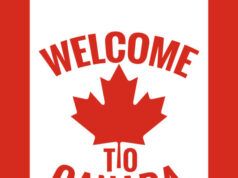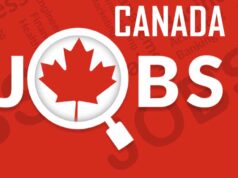The ability to make informed financial decisions is essential for functioning in Canadian society, yet many newcomers need to be equipped to become smart consumers.
Newcomers are big targets for fraud, and as such, knowing your financial rights and responsibilities is the best way to protect yourself from scams. It is also the first step toward financial independence in your new country.
In this article, we’ve compiled 11 common financial mistakes to avoid when moving to Canada.
Financial Mistakes to Avoid as a Newcomer in Canada
1. Not Planning Your Budget
Budgeting is the first rule of financial success, whether you’re immigrating to Canada or anywhere else. Not having a budget can lead to unexpected financial setbacks, especially when settling into a new country.
Before you arrive in Canada, create a budget that outlines your fixed costs, financial goals, anticipated expenses, and unanticipated expenses. In addition, regularly track your spending habits and adjust them to ensure your financial goals remain achievable.
After you establish your budget, be sure to review it every six months to align your goals with your new situation. For example, if you start making more money, you may redistribute your earnings to meet new goals.
2. Not Building a Credit History
Building your credit history is the most important step toward improving your financial well-being. It can help with renting an apartment and borrowing money in the future for school, a car, or a home.
Your credit score is a number between 300 and 900. A high number signals to a lender that you’re likely to pay them back and improves your ability to borrow money in the future, while a low score means you’ll likely have difficulty securing a car loan, mortgage, or even renting an apartment.
Therefore, make establishing credit a priority and ensure a high score by paying bills on time. With this, you get to avoid financial mistakes when immigrating to Canada.
3. Being Reckless With Credit Cards
Credit cards are the easiest way to build a credit history, but they can be a double-edged sword if used improperly. Some newcomers have a credit card but need to know their interest rate, grace period, or what happens if they miss a payment.
The others avoid credit cards altogether because they’re used to using only cash in their home country. Meanwhile, you do not have any reason to be afraid of credit cards, but to research the interest rates and benefits the card can provide, such as insurance discounts or points you can redeem for gas or groceries — and then use it wisely.
It is advisable to only use it for things that can be paid off in full monthly. Remember that signing up for a credit card is not a decision to take lightly.
4. Trusting Department Store Credit Cards
Trusting credit cards from stores is one of the financial mistakes newcomers must avoid in Canada. Many department stores persuade consumers to register for their credit cards by offering a one-time discount on purchases. These cards are typically easier for newcomers to get, but they often come with higher interest rates and potentially more fees.
Simplify your financial matters by having only one credit card. Always remember that a reason to sign up for a credit card needs to be more than a one-time discount.
5. Not Reading Terms and Conditions
Always read and understand the terms and conditions of contracts, such as cell phone plans, insurance, banking products, or the lease agreement with your landlord. Failure to adhere to these terms may result in unforeseen penalties and expenses. Take your time to make informed decisions and avoid being rushed or pressured into agreements.
6. Avoid Credit Card Debt
While credit cards can be useful for building credit, they can become problematic if misused. Accumulating high levels of debt due to overspending can undermine your financial goals. To avoid this, pay off your credit card balance in full each month and avoid late payments. Also, limit yourself to one or two cards for essential expenses only.
7. Failure to File Taxes
Filing taxes is mandatory in Canada, and having a Social Insurance Number (SIN) for this purpose is essential. Failing to file taxes can lead to missed government benefits and potential fines or interest charges.
8. Giving the Bank the Cold Shoulder
Sometimes, newcomers assume they are only eligible to open bank accounts after a while. However, if you have two pieces of identification and qualify under the Banking Act, you can open a chequing or savings account.
Establishing a relationship with a financial institution early on can speed up the process of getting access to credit when you need it. If you’re thinking about buying a home, ask about saving for your child’s education, retirement, and mortgage programs.
Also, remember to shop for a bank that meets your needs. Selecting a bank with a convenient location can save you money.
9. Relying on Payday Loans
Payday loans are a very expensive way of borrowing money. Loan centers charge fees and interest rates as high as 60 percent, making them difficult to avoid.
10. Not Asking Questions
You may not even know what you don’t know, so don’t hesitate to seek professional advice. Canadian banks like Scotiabank offer comprehensive financial planning services and multilingual support.
Their advisors can help you understand your financial options, create a personalized budget, and guide you toward financial success.
11. Falling Victim to Financial Fraud
Speaking of fraud, unfortunately, online payment and money transfer scams often target people new to a country, including Canada. To protect yourself, only transact with people you trust.
It is advisable to be alert to potential fraud attempts:
- Online marketplace scams: Where a fraudulent seller asks for payment in advance and then never sends the item. Always read seller reviews and ask to meet in person (in a public setting) before sending money.
- Rental scams: Where someone poses as an unavailable or proxy landlord and asks for a deposit, often through a money transfer. There isn’t actually a rental, and the deposit is gone. Avoid “landlords” who don’t want to meet in person and never send money for a security deposit without confirming the legitimacy of the property.
Conclusion
Planning your financial journey in Canada should begin before you arrive. Early financial planning and learning about your banking options will set you up for success. While adapting to a new country may be challenging, starting right can make the transition smoother and help you achieve your goals.
By avoiding these common financial mistakes, newcomers can learn to navigate the financial system successfully while settling into a new (and hopefully prosperous) life.





